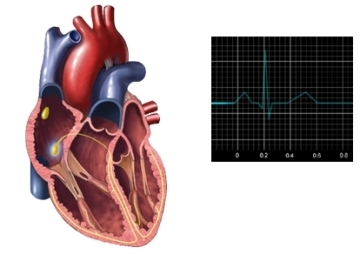Bulimia
Description bulimia
Nervnaya bulimia – eating disorder. People, Patients with bulimia, excessively concerned about their weight. They eat very large amounts of food, and then trying to get rid of it, causing vomiting, taking laxatives or water pills. Also it can be used in conjunction excessive exercise or fasting.
Causes of bulimia
The exact cause of bulimia is unknown. Factors, which may contribute to the disorder, They include:
- The desire to lose weight;
- Changes in the level of brain chemicals;
- Emotional stress;
- Impaired self-esteem.
Risk factors for bulimia
Factors, which increase the likelihood of developing bulimia:
- Paul: female;
- Age: 11-20 years;
- Obesity in the vulgar;
- Alarm;
- Mood disorders;
- The presence of family members, who have had eating disorders or mood disorders;
- Low self-esteem;
- Dissatisfaction with weight and body size;
- Job, where appearance is important.
Symptoms of bulimia
Behavioral symptoms include:
- Eating unusually large amounts of food at one time;
- Constant hunger;
- Laxatives, enemas, or diet pills;
- Significant swings in mood;
- Symptoms of depression;
- The difficulties with the control of their desires;
- Alcohol abuse or drugs.
Physical symptoms include:
- Abdominal pain and heartburn;
- Menstrual problems;
- Swollen cheeks and jaw;
- Sore throat;
- Swelling of the salivary glands (in the mouth and throat);
- Vspuchivanie life;
- Anomalnoya painting or chipped teeth (by contact with gastric acid);
- Injury or scars on back of hands (as a result of skin damage teeth during forced vomiting).
Bulimia can cause other problems, including:
- Dental problems and throat problems from stomach acid, which rises through the esophagus during vomiting;
- Changes in the balance of chemicals and fluids due to vomiting and abuse of laxatives or enemas.
Symptoms of these complications include:
- Dizziness;
- Feeling faint;
- Thirst;
- Muscle cramps;
- Weakness;
- Constipation;
- Irregular heartbeat;
- Problems with heart, including sudden death.
People with bulimia have a high incidence of mental illness. Particularly common:
- Depression (often with sudden mood swings);
- Anxiety and panic disorder;
- Drug and alcohol abuse.
Diagnosis of bulimia
The doctor will ask about:
- Medical and psychological condition;
- Amount of food consumed;
- The body's way of getting rid of the food.
The doctor will also perform a physical exam. The teeth will be checked for signs of erosion.
Tests may include:
- Blood tests – to find a chemical imbalance;
- Electrocardiogram (ECG) – to search for heart problems;
- Review the medication and drugs – to test drug.
Can be conducted psychiatric and/or psychological tests to assess the status of the psyche.

Treatment of bulimia
The goals of treatment are:
- Stopping eating and body cleansing;
- Improved self by weight and body shape.
Treatment includes:
Healthy eating
You may be referred to a dietitian. He will teach you, how to follow a healthy diet and maintain a healthy weight.
Psychotherapy
Cognitive therapy povedencheskaya It can be a very effective method of treatment, especially in combination with drugs.
Other treatments may be less effective, but can help:
- To understand the problem;
- Determine, which causes overeating and trying to get rid of food;
- To develop the skills to overcome problems;
- Trained in stress management;
- To develop a healthy relationship with food;
- Learn to eat regularly, to reduce the desire to drink.
Medications for the treatment of bulimia
Antidepressants, in particular, selective serotonin reuptake inhibitor (SSRIs), have proven effective, help reduce overeating and desire to get rid of food.
Prevention of bulimia
A healthy attitude to food and body help prevent bulimia. Prevention methods include:
- Maintain a rational approach to nutrition;
- Setting realistic goals;
- Consultation with a doctor or psychiatrist, If you think, what:
- The desire to lose weight is getting out of control;
- Can develop an eating disorder.
